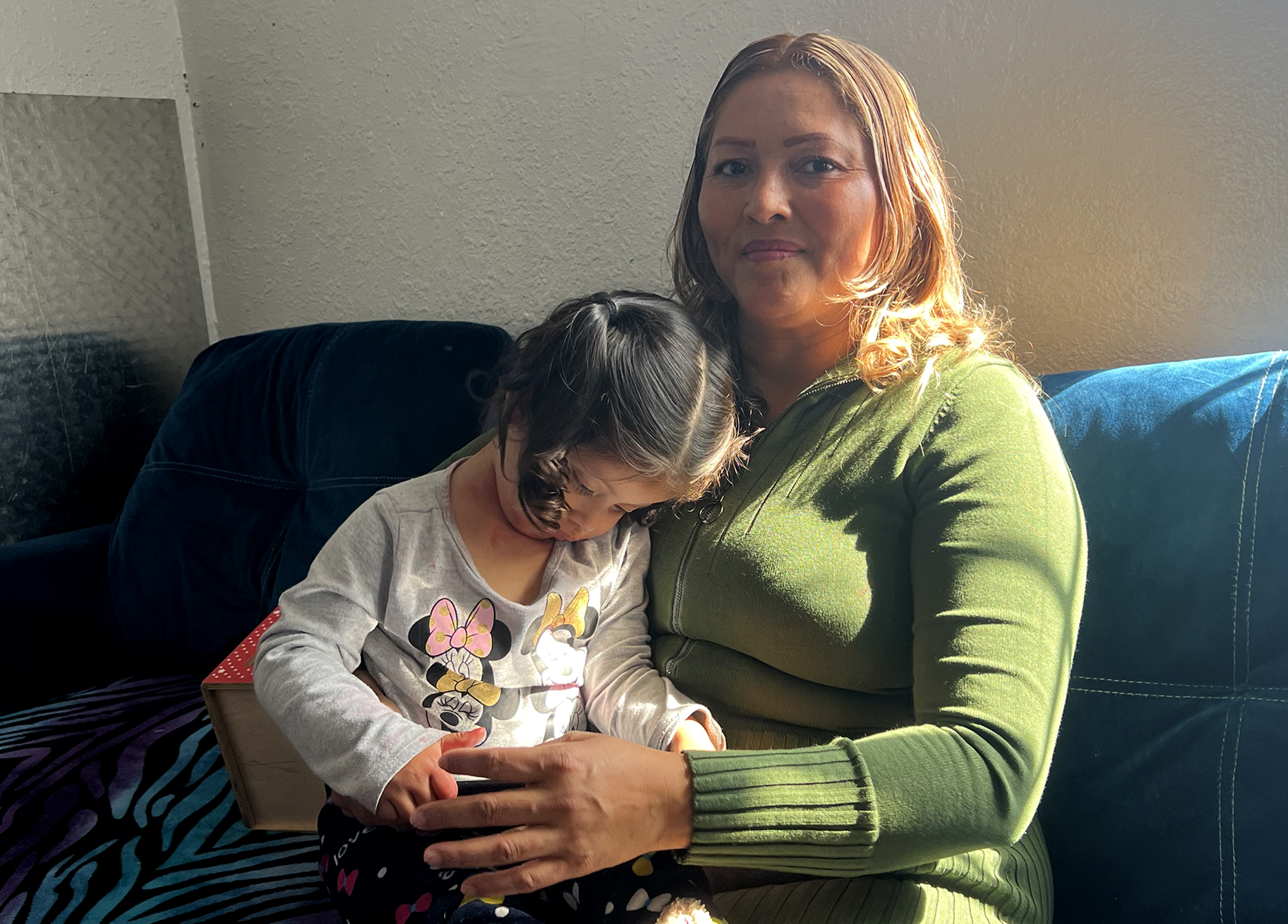
Blanca Nuvia Villatoro, a Salvadoran pupusa street vendor and immigrant, sits on her couch in her South Central home with her two-year-old daughter, Lupita.
TONY MORALES / NEXTGENRADIO
home?
Tony Morales speaks with Blanca Villatoro, a Salvadoran street vendor selling pupusas in front of her Los Angeles apartment complex. Her pupusas represent her place between two languages…two cultures…and two homes.
Finding home between two countries, a red canopy and a plate of pupusas
Listen to the audio story.
Click here for audio transcript
Hi. I’m Tony Morales with NPR’s Next Gen Radio in Los Angeles.
Blanca Villatoro is a Salvadoran street vendor who sells pupusas in front of her apartment complex.
The business is called Pupuseria Lupita, named after her toddler.
She makes her pupusas under a red canopy in South-Central L-A…. connecting her family here with her family in El Salvador.
[Sound of Pupusas being made…] Estoy haciendo la pupusa revuelta con frijoles, chicharon, y queso. / I’m making a mixed pupusa with beans, fried pork rinds, and cheese.
Mi nombre es Blanca Nuvia Villatoro. / My name is Blanca Nuvia Villatoro.
Llevo 11 años viviendo en los ángeles. / I’ve been living in Los Angeles for eleven years.
Para mí, un hogar es una comunicación muy bonita que pues, con vivir con la familia, eh? Saber llevarlos bien. / For me, home is a beautiful communication I have with my family. You know? It’s like knowing how to do it right.
Me dedico a cuidar mi familia. Me dedico a a cuidar mis dos hijas. Tengo una de 15 años aquí. Y tengo este la que tiene menos de tres años. Y mi esposo. / I dedicate myself to taking care of my family. I take care of my two daughters, a 15-year-old one and a 2-year old one I have here, and my husband.
Tengo mis hijos más mayores. Yo no los cuidé por mucho trabajo que tenía en mi pais. / I have three children older than my youngest. I didn’t take care of them because I had a lot of work in my country.
Y Yo no fui este la madre que ellos querían, por pues, lo económico y por la pobreza que hay allá, uno tiene que viajar y dejar a sus hijos. / I was not the mother they needed. Because of the economics and the poverty there, one has to travel and leave their children.
Entonces yo no tuve ese eso de cuidar mis hijos.Entonces yo le pedí a mi esposo que si yo podía cuidar un año a la niña, que es la que nació aquí en este país este y pues él me apoyó en ese en lo que yo quería. / I couldn’t take care of my children then. So I asked my husband if I could take care of the little girl for a year — she was born here in this country. And he supported my decision.
La razón por cual yo este empecé mi negocio.. la razón más importante, tengo mi niña este que tiene menos de tres años no la quería dar a cuidar a una babysitter. / The reason why I started my business.. The most important reason is because I didn’t want to give my two-year-old daughter to a babysitter.
Ya, eh, mi niña ya me voy a decir mamá, quiero un jugo. Ya lo vengo a sacar de la refri y ya este y ya se lo doy. Y eso es lo que me gusta que lo tengo aquí al lado de mi casa. / Here, my daughter is able to tell me “Mom, I want a juice!” I’m here to take it out of the fridge and I’ll give it to her myself. And that’s what I like, that I have my business here next to my house.
[Sound of Pupusas sizzling] Here you go, a pupusa revuelta…
Pues yo ya lo traigo, pues también en la sangre, porque mi mamá también fue negociante y yo fui negociante de frutas y y ahora yo, pues, vendo pupusas. Y me gusta atender a los clientes amablemente. / I have this in my blood. My mother was also a merchant and I was a fruit merchant before this — and now I sell pupusas. I like to provide great service to my customers.
Y tengo que también lo hago, porque lo tengo que, pues ayudar a mi mamá que ya tiene cierta edad y ella no trabaja y solamente yo tengo que trabajar. / I also have to do this because I have to help my mother who is already of an older age and she doesn’t work — which is another reason why I have to work.
Quiero en un futuro, pues tener un local pequeño para yo ejercer mi venta de pupusas. Quiero estar con mi familia más tiempo porque mi familia, pues es bien importante mantenerla. / In the future, I want to have a small place for me to sell pupusas. I want to spend more time with my family at home because it is important to me to keep us together.
Aquí los vecinos de de mi área. También ellos. Este me apoya muchísimo y vienen a comprarme las pupusas. Y eso pues me llena de orgullo, porque aparte que tengo el apoyo de mi familia, también el apoyo de mi pareja, y eso es muy importante. Siento que pues, me hace que siga adelante. / The neighborhood supports buying pupusas from me. That fills me with pride because it’s on top of my family’s support. I also have the support of my husband, and that is very important to me. I feel like this motivates me to keep going.
Less than three miles from the USC campus, Blanca Villatoro molds pupusas under a red canopy on the street in front of her apartment complex. She named her food stand Pupuseria Lupita, after her two-year-old daughter, who plays beside Villatoro as the pupusas cook on the griddle.
From pulling on her mother’s apron to riding her scooter on the apartment driveway, Lupita reminds customers how close to Villatoro’s home they are stepping. Lupita also reminds her mother of the family and home that remain in El Salvador, which Villatoro left before emigrating to Los Angeles in 2012.
For Villatoro, home is more than a place to live: It’s communication and the support her family gives her. Her pupusa stand on 49th Street helps connect her families to her two homes, in L.A. and El Salvador.
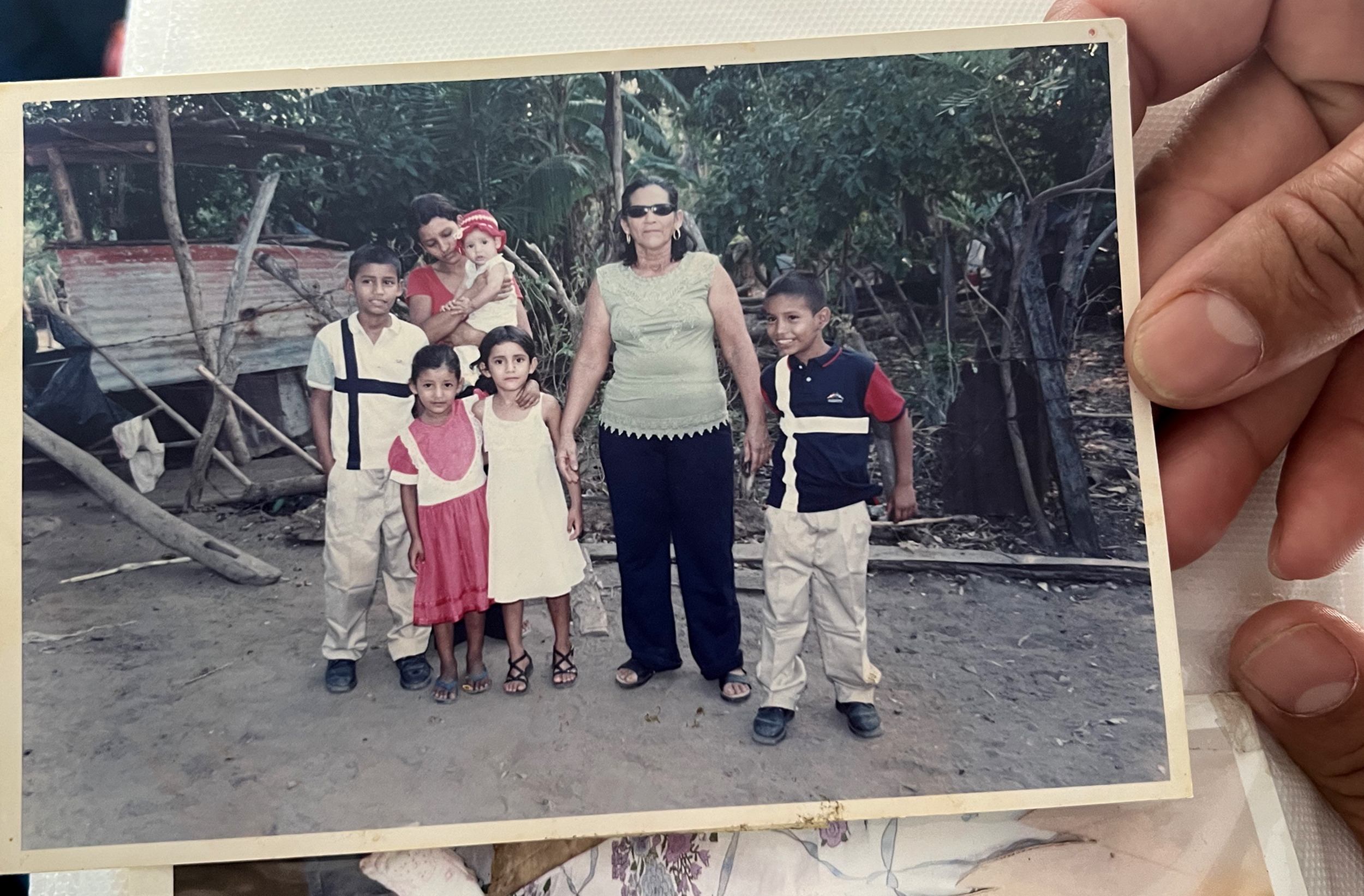
Blanca’s mother poses with her five grandchildren and Blanca’s sister (red shirt) in 2004 in the yard of their San Marcos Lempa, El Salvador, home. The girl in the white dress is Blanca’s oldest daughter Karla Osiris.
COURTESY OF BLANCA VILLATORO
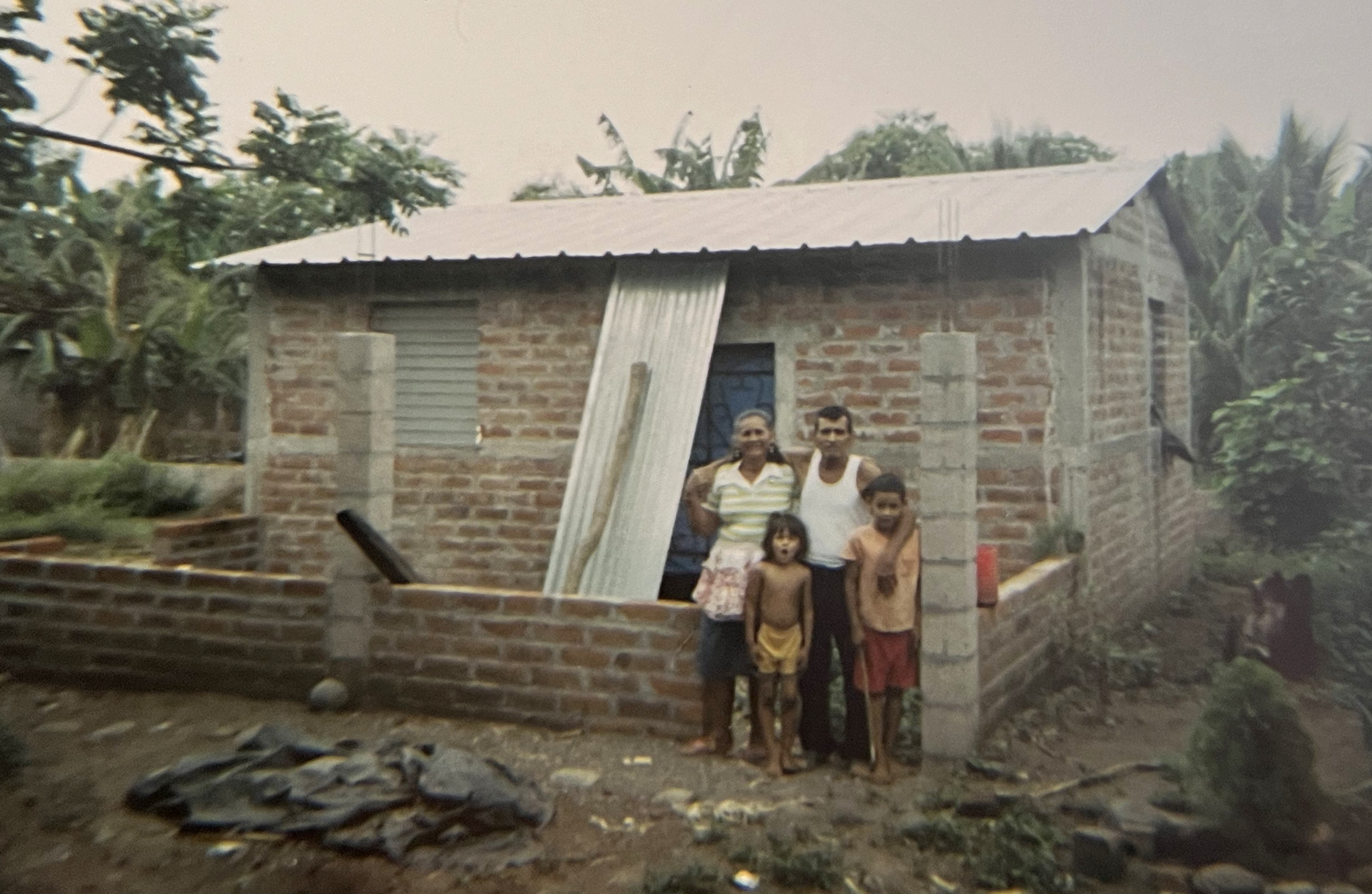
Blanca’s parents, nephew and daughter Dianora pose in front of Blanca’s home in San Marcos Lempa, El Salvador, in 2014. Blanca bought the home by selling fruits in her country and continues building it with money earned from her pupusas stand.
COURTESY OF BLANCA VILLATORO
‘I was not the mother they needed’
Villatoro began street vending on roads in El Salvador, selling fruit with her mother and sister. The money Villatoro earned from that business helped her pay to have her first home, a brick house with a metal roof, built in San Marcos Lempa, El Salvador. Villatoro lived in the home with her parents and her two daughters, Osiris and Dianora. Blanca has another son, Brandon, who was living with his paternal family, also in El Salvador.
She described how street vending prevented her from building a closer relationship to her three children at the time. Villatoro’s mother was the support at home that allowed for her to work more and provide financially.
“I was not the mother they needed,” Villatoro explained through an interpreter. “Because of the economics and the poverty there, one has to travel and leave their children.”
She wanted to change this with Lupita, who’s her youngest child. After arriving in L.A. Villatoro worked in factories until Lupita was born.
“I have my daughter who is less than three years old, and I did not want to give her to a babysitter” in place of having a parent around, said Villatoro.
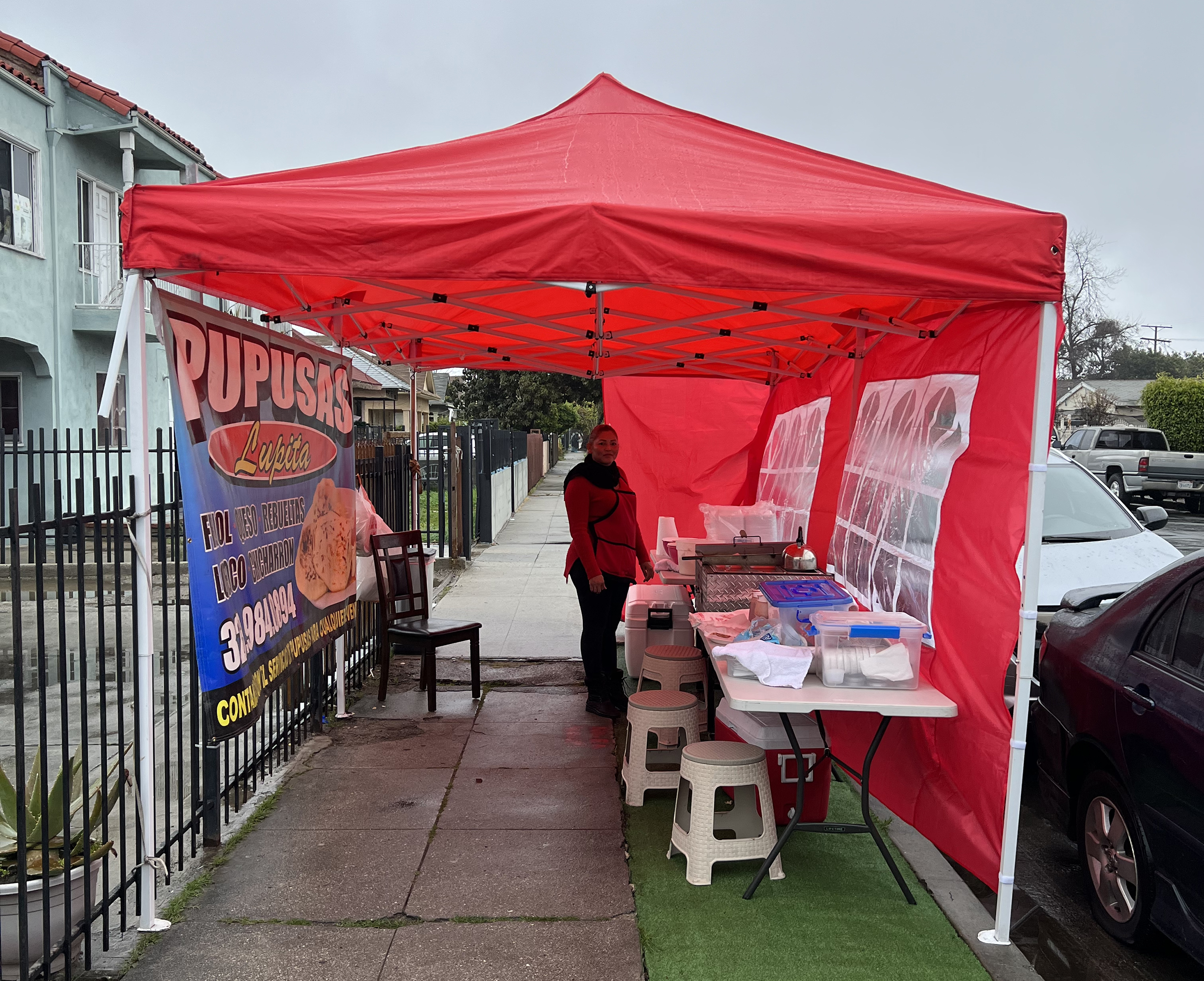
Blanca cooks inside her food stand, Pupuseria Lupita, in front of her apartment complex. She’s open for business Friday to Sunday from 9 a.m. to 9 p.m.
TONY MORALES / NEXTGENRADIO
Under the red canopy on 49th Street
Villatoro began Pupuseria Lupita in front of her apartment building so that she could stay closer to her young daughter while working. When Villatoro decided to return to street vending, it was important for her to continue building a relationship with Lupita. She is Villatoro’s only child born in the U.S., and last month Villatoro and Dianora, the second youngest child, reunited in L.A. after years apart.
Villatoro is one of the estimated 10,000 street vendors in Los Angeles County. She’s been building Pupuseria Lupita since September 2022, transitioning from a space in the apartment building’s front yard to a larger stand on 49th Street. Villatoro uses the business as a vehicle to continue connecting her families in both countries.
The business allows Villatoro to continue helping her children and her aging mother and to continue adding improvements to her home in El Salvador. In L.A., the business helps bridge the relationship between mother and daughters.
Dreams for a brick and mortar
Villatoro has aspirations to grow her business outside of her current red canopy. She hopes to one day own a more permanent location in Los Angeles for the pupuseria, still close to where her family lives.
“In the future, I want to have a small storefront for me to sell pupusas,” said Villatoro. “I want to spend more time with my family because it is important to keep us together.”
Villatoro emphasizes the importance of her neighborhood and families’ support — and how that support brings her pride and joy. She credits them for the motivation to envision a building bridge between El Salvador and Los Angeles.
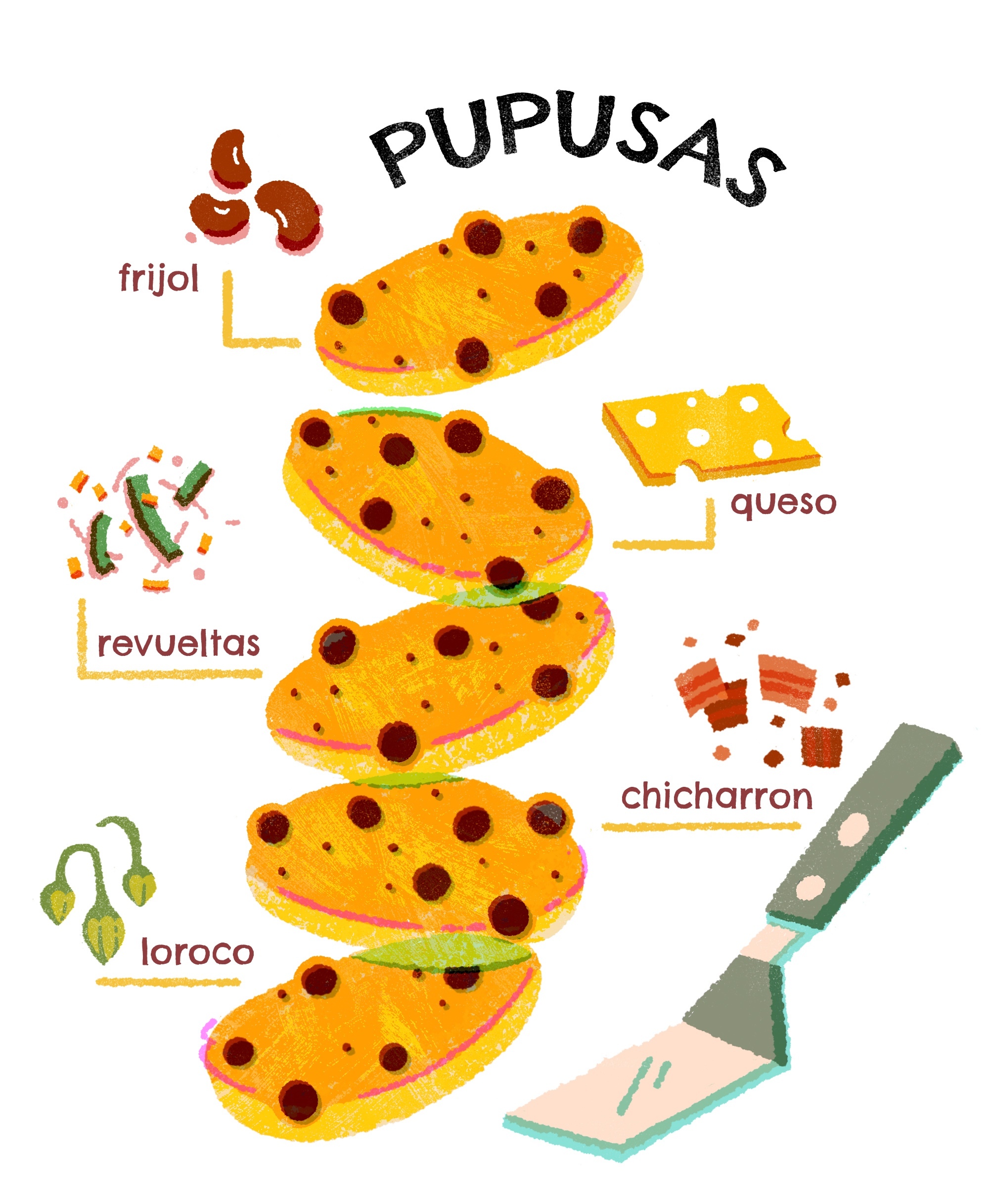
ILLUSTRATION BY YUNYI DAI